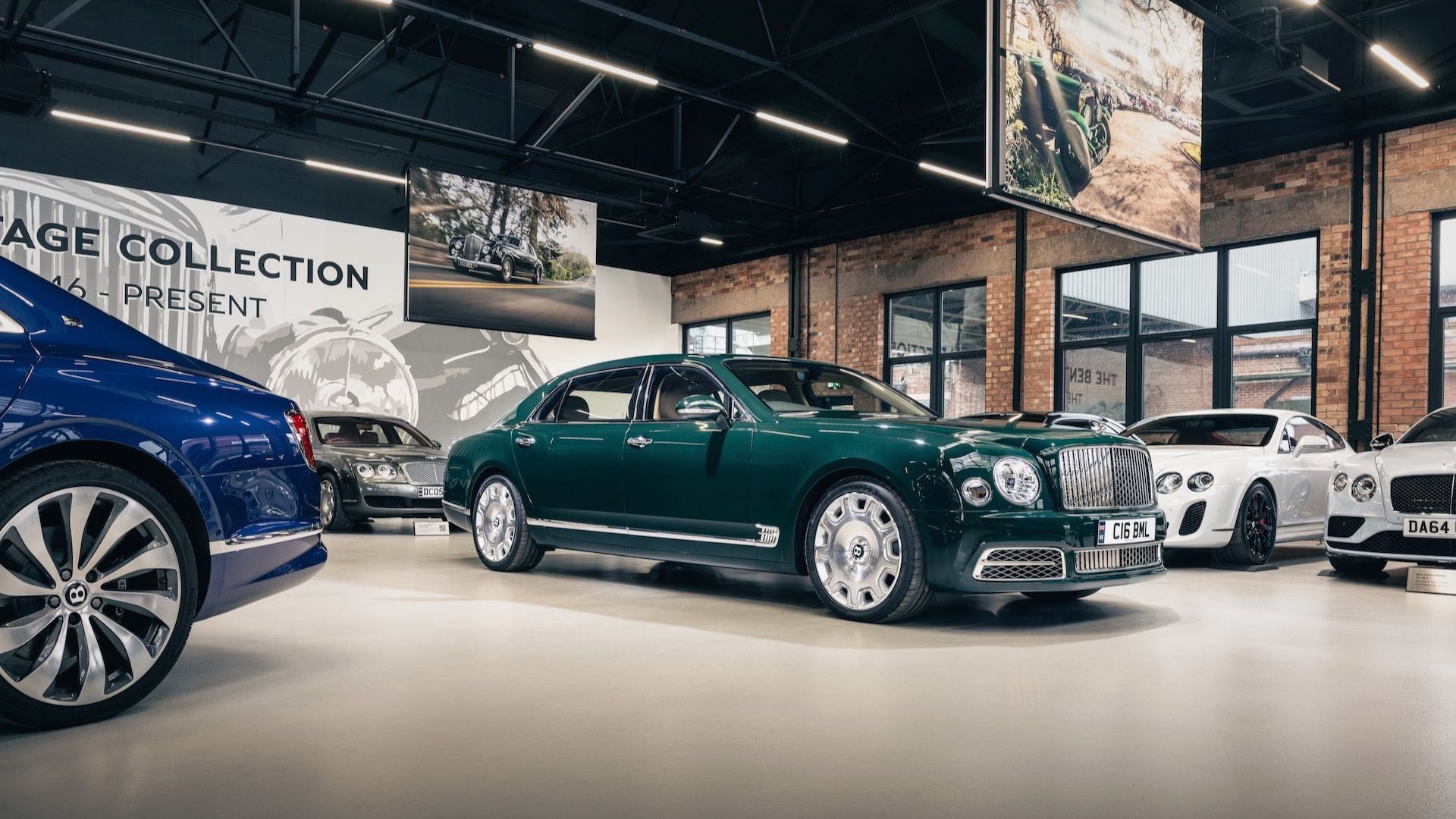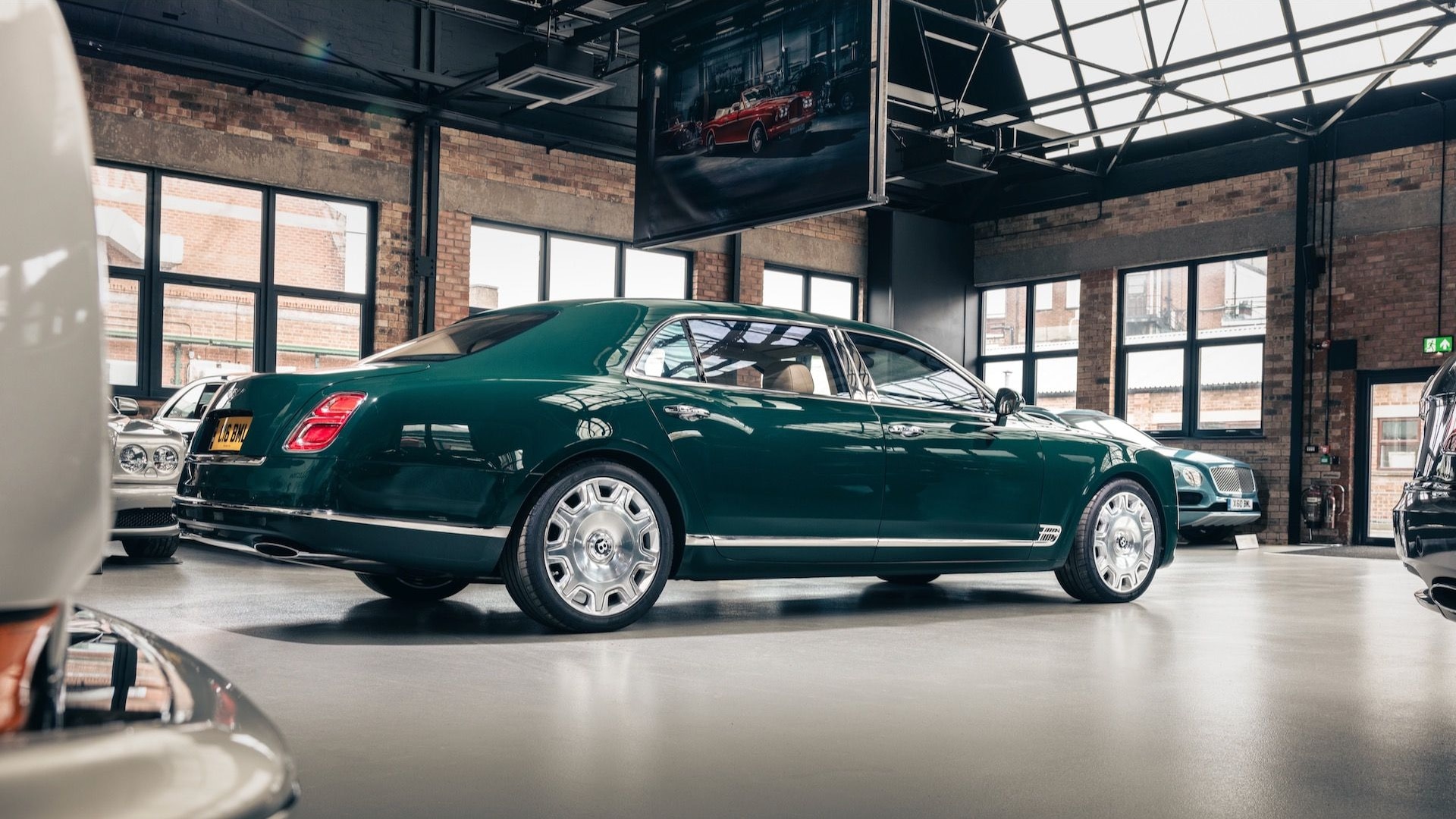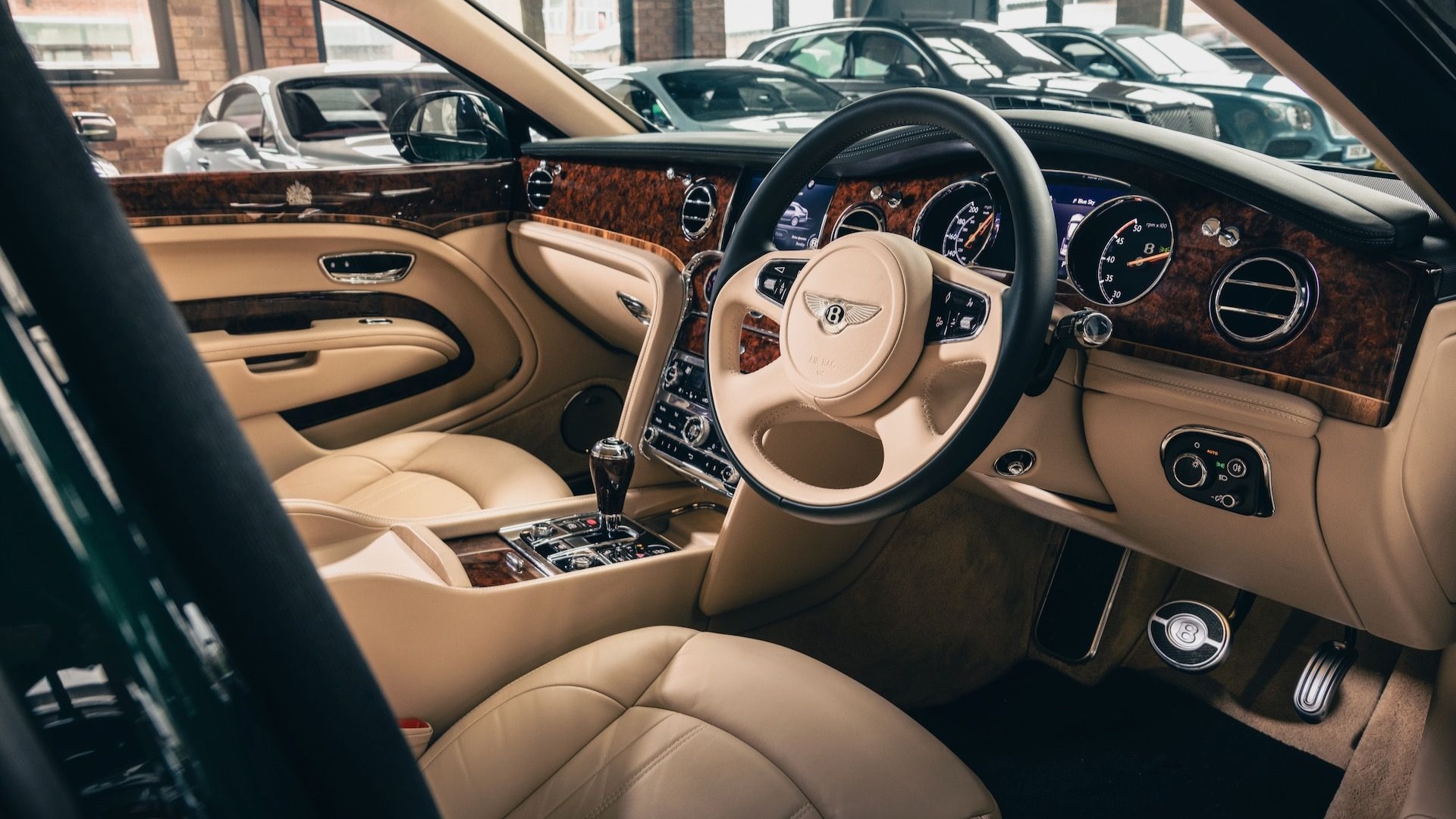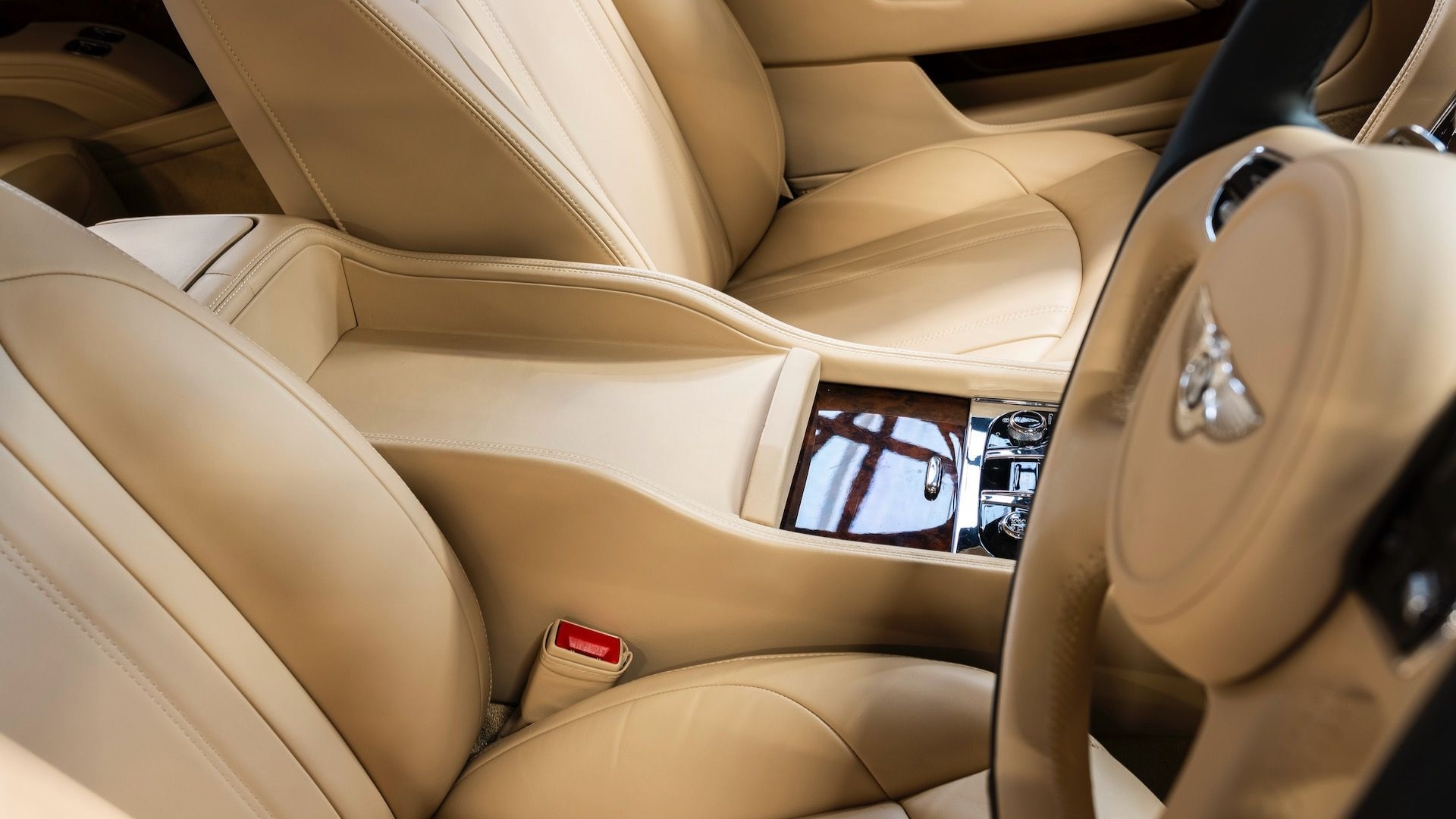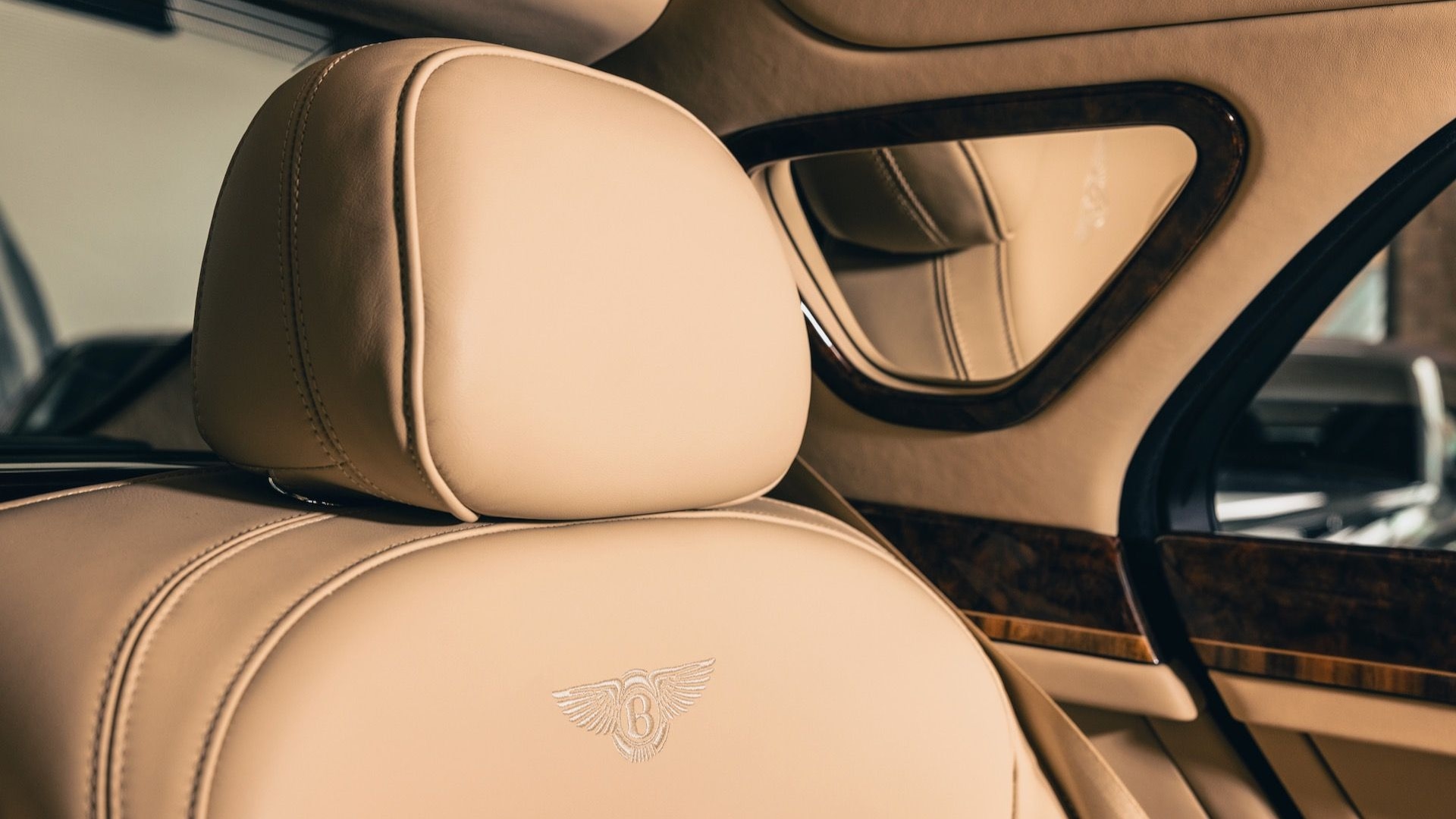The final Bentley Mulsanne sedan produced has returned to the automaker's factory in Crewe, England, where it will join the 45-car Bentley heritage collection.
Mulsanne production ended in 2020. The final 30 regular-production cars were a special series commemorating the end of production, but the final Mulsanne built was in fact a special commission from the late Queen Elizabeth II, according to a Bentley press release.
Painted in Barnato green with a Twine and Cumbrian leather interior sporting Burr Walnut wood veneers and lambswool carpets, the royal Mulsanne has some special features not seen on ordinary cars. It sports police sirens and a loudspeaker on the outside, with rear privacy curtains, inlaid U.K. royal coats of arms, and a tray for the Queen's handbag on the inside.
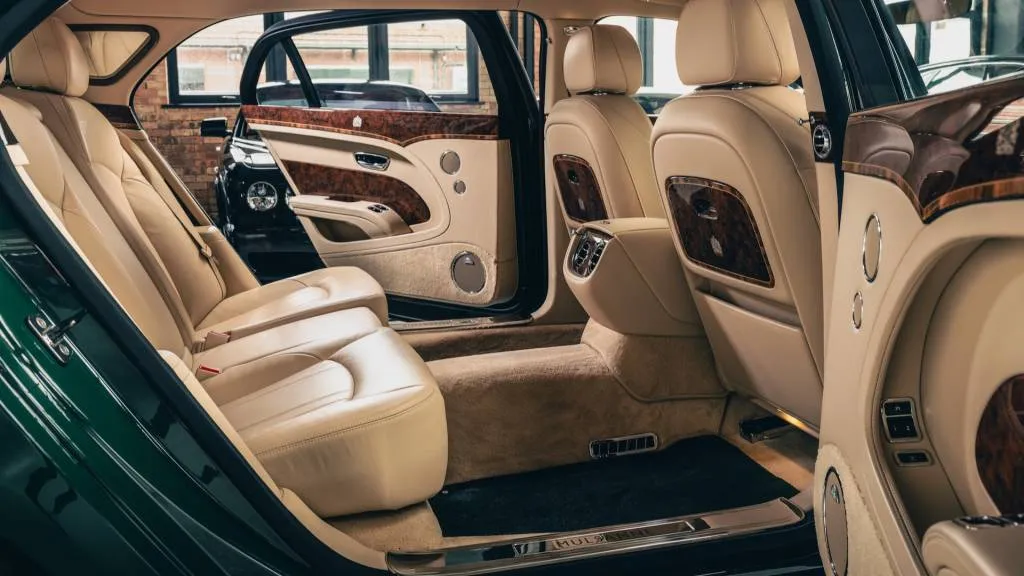
The final Bentley Mulsanne
The Mulsanne was introduced in 2009, replacing the Arnage as Bentley's flagship sedan. It received a refresh in 2016 that included the addition of an extended-wheelbase model to the lineup. Bentley built approximately 7,300 of the sedans over the course of the production run.
Throughout its run, the Mulsanne was powered by the L-Series V-8, which had powered Bentley (and Rolls-Royce) luxury cars for 61 years. The last cars offered to regular customers were dubbed Mulsanne 6.75 Editions in reference to the engine's displacement.
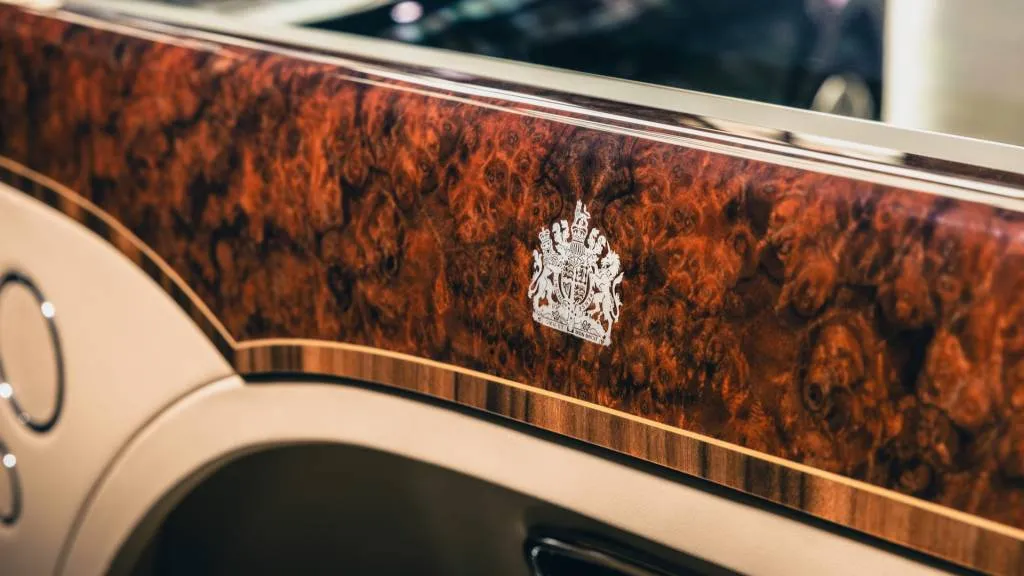
The final Bentley Mulsanne
The final Mulsanne joins two other examples of the sedan in Bentley's heritage collection. Bentley has retained the second Mulsanne built, as well as a 2019 Mulsanne Speed that was previously part of the automaker's press fleet. The collection also includes the oldest Bentley in existence, plus various race cars.
After the Mulsanne's retirement, Bentley designed the Flying Spur as its new flagship, while rumors of a new flagship model to fill the void left by the Mulsanne have circulated. This model could be an SUV instead of a sedan, and it will most likely be an EV as Bentley moves to make its lineup all-electric by 2030.
